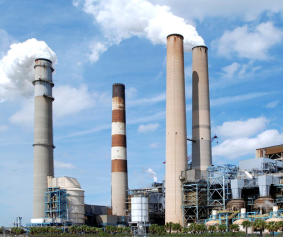Obama to Circumvent Congress on New Climate Deal
Thursday, August 28th, 2014 @ 6:42PM
Gary D. Halbert
Between the Lines
President Obama is working to forge a sweeping international climate change agreement to compel nations to cut their fossil fuel emissions – but without ratification from Congress. Under the Constitution, a president may enter into a legally binding treaty only if it is approved by a two-thirds majority of the Senate.
Knowing that the Senate would not ratify such a climate change treaty, they’re going to call it something other than a treaty. Obama’s climate negotiators are devising what they call a “politically binding agreement” that would “name and shame” countries into cutting their carbon emissions.
The question is, can Congress stop him?
In preparation for this agreement, to be signed at a United Nations summit meeting in 2015 in Paris, the negotiators are meeting with diplomats from other countries to broker a deal to commit the world’s largest economies to enact laws to reduce their carbon pollution.
The deal is likely to face strong objections from Republicans, and even some Democrats, on Capitol Hill and from many poor countries around the world – but negotiators are proceeding nonetheless. A top Obama climate change negotiator, Paul Bledsoe, said:
“If you want a deal that includes all the major emitters, including the U.S.,
you cannot realistically pursue a legally binding treaty at this time.”
American negotiators are instead homing in on a hybrid agreement – a proposal to blend legally binding conditions from an existing 1992 climate treaty with new voluntary pledges. The mix would create a deal that would update the treaty, and thus, negotiators say, not require a new vote for ratification.
Countries would be legally required to enact domestic climate change policies – but would voluntarily pledge to specific levels of emissions cuts and to channel money to poor countries [read: new taxes and higher energy prices] to help them adapt to climate change. Countries would then be required to report their progress toward meeting those pledges in the future.
At the United Nations General Assembly in New York next month, delegates will gather at a sideline meeting on climate change to try to make progress toward the deal next year in Paris. A December meeting is planned in Lima, Peru, to draft the agreement.
In seeking to go around Congress to push his international climate change agenda, Mr. Obama is echoing his domestic climate strategy. In June, he bypassed Congress and used his executive authority to order a far-reaching new EPA regulation forcing American coal-fired power plants to curb their carbon emissions. I wrote about this on June 5. That regulation, which would not be final until next year, already faces legal challenges, including a lawsuit filed on behalf of a dozen states.
Yet unilateral action by the world’s largest economy will not be enough to curb the rise of carbon emissions across the globe. That will be possible only if the world’s largest economies, including India and China, agree to enact similar cuts. Fat chance of that!
A climate deal that would not have to be ratified by the United States or any other nation is also drawing fire from the world’s poorest countries. In African and low-lying island nations most vulnerable to the impacts of supposed climate change – officials fear that any agreement made outside the structure of a traditional United Nations treaty will not bind rich countries to spend billions of dollars to help developing nations deal with climate change.
Fact: About a dozen countries are responsible for nearly 70% of the world’s carbon pollution, chiefly from cars and coal-fired power plants. At a 2009 climate meeting in Copenhagen, world leaders tried but failed to forge a new legally binding treaty to supplant the 1997 Kyoto Protocol. Instead, they agreed only to a series of voluntary pledges to cut carbon emissions through 2020.
The Obama administration’s climate change negotiators are desperate to avoid repeating the failure of Kyoto, the United Nations’ first effort at a legally binding global climate change treaty. Many nations around the world signed on to the deal, which would have required the world’s richest economies to cut their carbon emissions, but the Senate refused to ratify the treaty. Seventeen years later, the Senate obstacle remains.
So, in yet another abuse of power (in my opinion), President Obama is seeking to commit the US to yet even more onerous and expensive climate rules and regulations by circumventing Congress, claiming that this sweeping new international climate agreement is NOT a treaty – when clearly it IS a treaty.
Again, the question is, can Congress stop him? Let’s hope so!
Finally, rumors are swirling that President Obama will grant amnesty to at least five million illegal immigrants by way of an Executive Order on Labor Day. We’ll see.
Posted by AIA Research & Editorial Staff
Categories: Between the Lines


